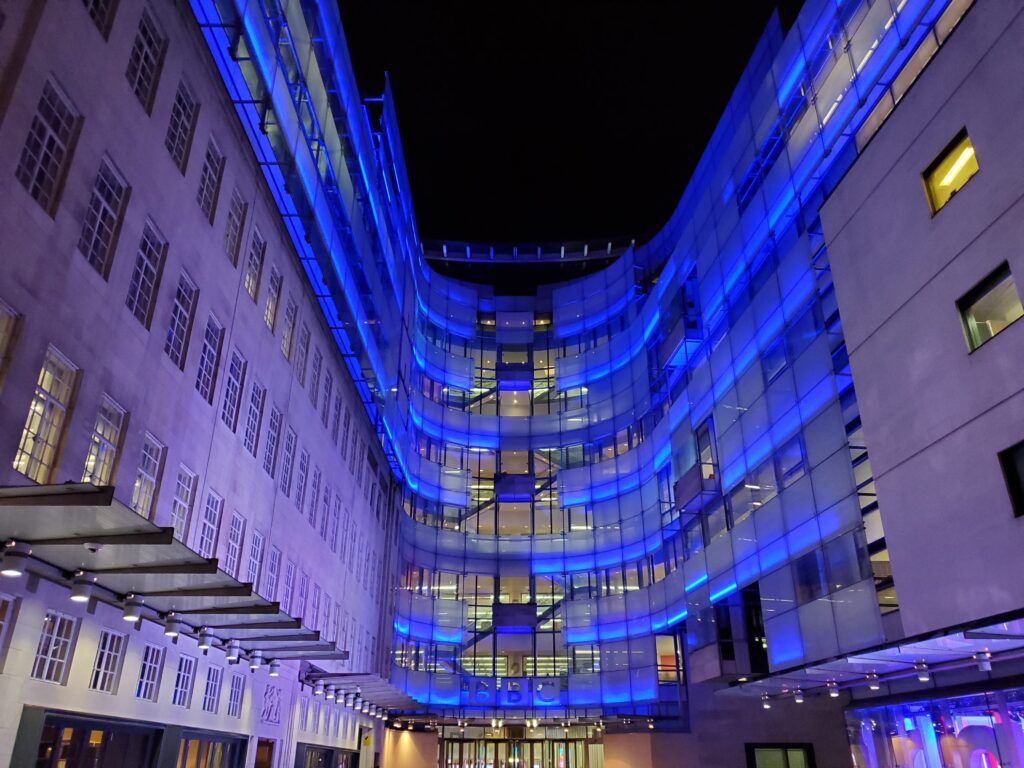The House View: Why we should make the TV license an NFT
May 25, 2023
I recently received my bill for my UK TV Licence of £164 for the year. It comes from the TV Licensing Authority. It doesn’t actually say BBC on it, but TV Licencing Authority is one of the BBC’s trade names.
Basically the bill is for the right to watch live TV (any channels, not just BBC) and use the BBC iPlayer. I’m not going to get into the question of why I should pay a fee to watch live ITV or Channel 4 and have all the money go to BBC. It certainly didn’t help them get the Masters golf tournament I tuned in to watch last month only to find out they didn’t buy it. As for iPlayer as a stand-alone, it works out to £13.67 a month, twice as much as Netflix. Say no more.
My favourite BBC moment is when the news does ‘what the papers say.’ Hold on, I pay you so your TV channel can tell me what’s in the newspaper? How about I get to keep my £13.47 and I buy the papers myself if I feel like it?
But enough levity and I am not beating up on BBC (life without the Eurovision Song Contest isn’t worth living). I have a serious point to make. Isn’t the TV Licence a perfect example of something that should be an NFT? (As much as I hate that term NFT, we seem to be stuck with it for now.)
In fact, a TV licence is already a ‘token’ (to use the lingo of the Web3 rabbit hole). Now BBC needs to tune in some technology and create products for younger audiences and a market changing too fast for comfort.
Instead of just compelling people to give them money for their token, they should be creating genuine loyalty by personalising it and building in some real utility beyond the feeble offer of ‘I get to watch live TV and use the iPlayer.’ They can build authentic, engaged BBC communities (instead of one big compulsory one including many disgruntled citizens thereof).
I even have a name for the BBC NFT.
Sacred Cow.
Sorry again, I’m not really talking about the BBC but any company that sells TV subscriptions. The old pay business model is worn out. Media companies need to be offering new experiences, more value.
There are so many ways for content providers to do this with blockchain. There’s a whole new Web3 world emerging out there as the boundaries blur between sports, entertainment and gaming. And it can generate more revenue than plain vanilla subs.
They may not see it this way, but the BBC has a history of investing in NFT-type content. Years ago I visited the BBC Special Cameras Unit. It was a place where they had a bunch of boffins building wacky camera devices just like Q in James Bond movies. The whole purpose was to improve the viewer’s experience of the Olympics.
That is value creation. Build that kind of innovation into an NFT. Make your TV Licence an entry pass to the metaverse. Shift the BBC brand from living in the past to the future, from yesterday to tomorrow.
I mention Special Cameras, but we are talking about something a lot bigger. BBC and kindred organisations will need partners. One of the things that has characterised public broadcasters over the years is a perceived need to do everything in-house. That won’t cut it anymore. Web3 is about maximum collaboration.
Partnerships will define the evolution of Web3 (and generative AI). That is the whole rationale behind SEG3: Sports Entertainment & Gaming taking place at Emirates Stadium in London June 28-29. Learn what others are doing and connect. Find out more here.
It’s entirely possible that in-house boffins at BBC (if they still exist) are already working on their NFT. Let’s hope it’s so good that the thing becomes voluntary.
By Jay Stuart, Content Director iSportConnect.


